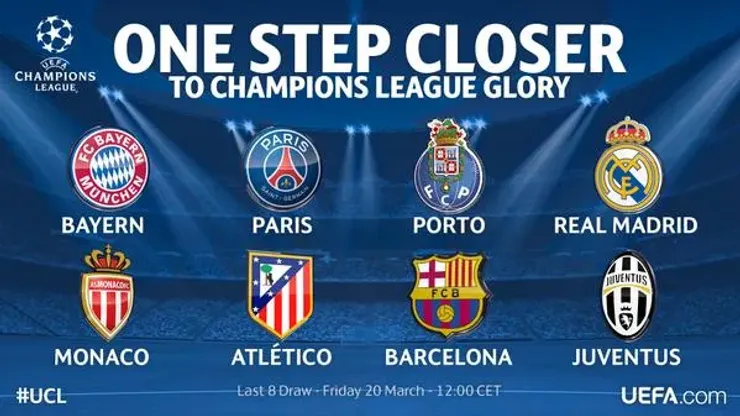So much for the ‘Greatest League in the World’ eh?
For the second time in three seasons, no Premier League club has made it into the last 16 of the Champions League. All the millions spent by Chelsea, Manchester City, Arsenal and Liverpool counted for little when it came to the crunch. England’s elite just weren’t good enough.
It is a far cry from the years 2007 to 2009, when the Premier League produced nine of the 12 semifinalists and four of the six finalists and it is surely going to prompt a major inquest into the failings of the English game.
Well, perhaps not.
For sure, there will be the familiar rehashing of weary debates over ‘winter breaks’ and fixture congestion and Europhiles will tell us how tactically naive Premier League managers, players and teams are compared to their European counter-parts. But there was no winter break when English teams dominated and I don’t remember many experts lambasting the tactical naivety of Manchester United and Chelsea when they faced each other in an-all Premier League final just seven years ago.
Those who have an agenda against the Premier League will enjoy the schadenfreude for a few more days. There is, after all, no league in the world that generates as much jealousy as the Premier League but the reality is that the most popular league in the world has very little to worry about.
The next Premier League television deal, for the 2016-1019 period, will bring in a record £5.14 billion ($7.9 billion) – and that is just the domestic deal. Later this year the league will sell its international rights packages, which last time generated £2.23 billion ($3.5 billion) and could double this time around.
That money will ensure that the top Premier League clubs can continue to buy big and probably even bigger. Of course Real Madrid and Barcelona, who don’t share television revenue with their domestic rivals in the way that Manchester United and Arsenal do, will continue to be able to buy from the very best – especially from South America. But, apart from ‘super clubs’ Bayern Munich and Paris Saint-Germain, does the Premier League and its elite clubs really have much to fear – on or off the field – from the rest of Ligue 1, Serie A or the Bundesliga?
This year was never going to be a vintage year for Premier League clubs in Europe. Liverpool weren’t ready for a two-pronged challenge at home and abroad, especially after losing Luis Suarez to Barcelona. Manchester City still haven’t found their feet in European competition. Arsenal are building an interesting team that may yet provide Arsene Winger with a successful finale to his career but this year was too early to expect a major breakthrough from them and Manchester United’s rebuilding process left them outside the Champions League. If there was an English team that was capable of going all the way in Europe this year it was Chelsea, the only team that really failed to live up to expectations.
But does anyone doubt that Chelsea will be a strong challenger next year? Manchester United have signed some quality players in the past 12 months and it is surely only a matter of time before they are competitive again at the European level. Arsenal’s squad is packed with young talent that is only getting better. Things are less certain with Liverpool and Manchester City but they have the resources to make a serious go of improving in Europe.
But is improving in Europe really their priority? As much as people talk about the importance of qualifying for and competing in the Champions League, it is hard not to believe that for Premier League clubs, the priority is winning the domestic competition.
Yes, they will sometimes rest key players ahead of big European games, but look at it this way – there is no question of Jose Mourinho losing his job because of the defeat to PSG in the last 16, but if Chelsea were out of contention in the Premier League, his position would certainly be in doubt.
To some extent, that is true for all of Europe’s top clubs but some have an easier task than others on the domestic front – in mid-March, Juventus are already 14 points clear in Serie A, while Bayern Munich are 11 ahead of Wolfsburg in the Bundesliga.
Both those clubs enjoyed dominant positions in their domestic transfer markets and that should remind us that, in most cases, in European football money talks. A look at the money trends in the European game suggests that the Champions League is likely to remain, in the next five years, roughly what it has been in the past decade – a competition between the top Premier League clubs, the two Spanish giants and Bayern.
Whether that is good for European soccer is another question. But for English clubs, this year’s failings should not cause undue panic.
Editor’s note: Every Thursday, World Soccer Talk featured columnist Simon Evans shares his thoughts and opinions on world soccer topics. You can follow Simon on Twitter at @sgevans. Plus, read Simon’s other columns for World Soccer Talk.
200+ Channels With Sports & News
- Starting price: $33/mo. for fubo Latino Package
- Watch Premier League, Women’s World Cup, Euro 2024 & Gold Cup
The New Home of MLS
- Price: $14.99/mo. for MLS Season Pass
- Watch every MLS game including playoffs & Leagues Cup
Many Sports & ESPN Originals
- Price: $10.99/mo. (or get ESPN+, Hulu & Disney+ for $14.99/mo.)
- Features Bundesliga, LaLiga, Championship, & FA Cup
2,000+ soccer games per year
- Price: $5.99/mo
- Features Champions League, Serie A, Europa League & Brasileirāo
175 Premier League Games & PL TV
- Starting price: $5.99/mo. for Peacock Premium
- Watch 175 exclusive EPL games per season






